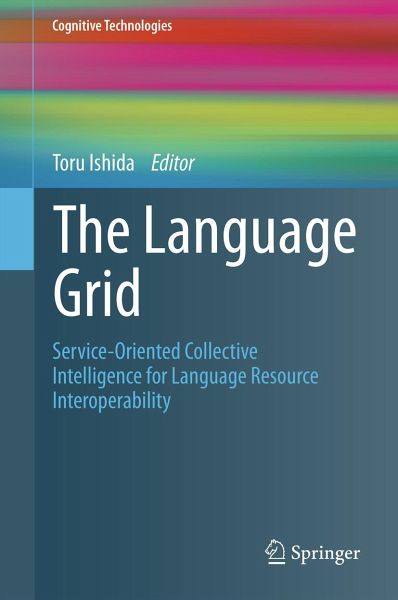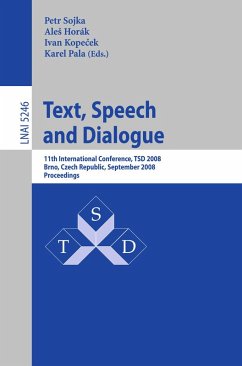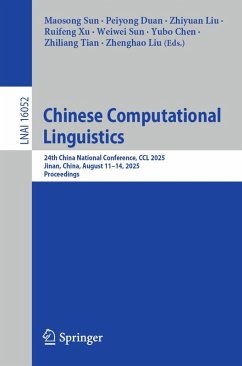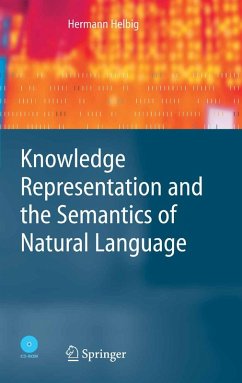
The Language Grid (eBook, PDF)
Service-Oriented Collective Intelligence for Language Resource Interoperability
Redaktion: Ishida, Toru
Versandkostenfrei!
Sofort per Download lieferbar
40,95 €
inkl. MwSt.
Weitere Ausgaben:

PAYBACK Punkte
20 °P sammeln!
There is increasing interaction among communities with multiple languages, thus we need services that can effectively support multilingual communication. The Language Grid is an initiative to build an infrastructure that allows end users to create composite language services for intercultural collaboration. The aim is to support communities to create customized multilingual environments by using language services to overcome local language barriers. The stakeholders of the Language Grid are the language resource providers, the language service users, and the language grid operators who coordin...
There is increasing interaction among communities with multiple languages, thus we need services that can effectively support multilingual communication. The Language Grid is an initiative to build an infrastructure that allows end users to create composite language services for intercultural collaboration. The aim is to support communities to create customized multilingual environments by using language services to overcome local language barriers. The stakeholders of the Language Grid are the language resource providers, the language service users, and the language grid operators who coordinate the former.
This book includes 18 chapters in six parts that summarize various research results and associated development activities on the Language Grid. The chapters in Part I describe the framework of the Language Grid, i.e., service-oriented collective intelligence, used to bridge providers, users and operators. Two kinds of software are introduced, the service grid server software and the Language Grid Toolbox, and code for both is available via open source licenses. Part II describes technologies for service workflows that compose atomic language services. Part III reports on research work and activities relating to sharing and using language services. Part IV describes various applications of language services as applicable to intercultural collaboration. Part V contains reports on applying the Language Grid for translation activities, including localization of industrial documents and Wikipedia articles. Finally, Part VI illustrates how the Language Grid can be connected to other service grids, such as DFKI's Heart of Gold and smart classroom services in Tsinghua University in Beijing.
The book will be valuable for researchers in artificial intelligence, natural language processing, services computing and human--computer interaction, particularly those who are interested in bridging technologies and user communities.
This book includes 18 chapters in six parts that summarize various research results and associated development activities on the Language Grid. The chapters in Part I describe the framework of the Language Grid, i.e., service-oriented collective intelligence, used to bridge providers, users and operators. Two kinds of software are introduced, the service grid server software and the Language Grid Toolbox, and code for both is available via open source licenses. Part II describes technologies for service workflows that compose atomic language services. Part III reports on research work and activities relating to sharing and using language services. Part IV describes various applications of language services as applicable to intercultural collaboration. Part V contains reports on applying the Language Grid for translation activities, including localization of industrial documents and Wikipedia articles. Finally, Part VI illustrates how the Language Grid can be connected to other service grids, such as DFKI's Heart of Gold and smart classroom services in Tsinghua University in Beijing.
The book will be valuable for researchers in artificial intelligence, natural language processing, services computing and human--computer interaction, particularly those who are interested in bridging technologies and user communities.
Dieser Download kann aus rechtlichen Gründen nur mit Rechnungsadresse in A, B, BG, CY, CZ, D, DK, EW, E, FIN, F, GR, HR, H, IRL, I, LT, L, LR, M, NL, PL, P, R, S, SLO, SK ausgeliefert werden.












